Architecture
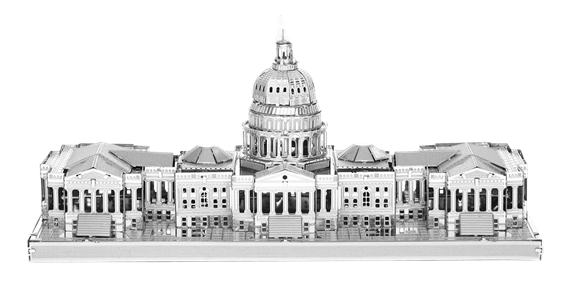
MMS054
US CAPITOL
2 Sheets
Challenging
Located in Washington D.C., the Capitol is the meeting place of the United States Congress. It sits atop Capitol Hill which is located at the east end of the National Mall. Construction began September 18, 1793. The Capitol is built in the distinctive American neoclassical style with a white marble exterior.
$0.00
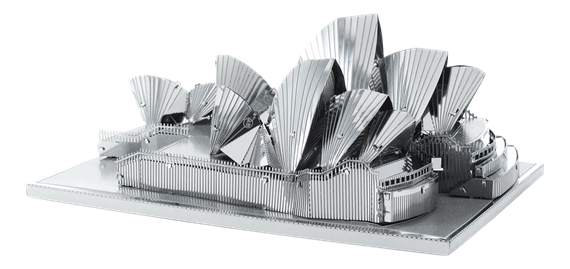
MMS053
SYDNEY OPERA HOUSE
3 Sheets
Challenging
The Sydney Opera House is a multi-venue performing arts center in Sydney, New South Wales, Australia. The Opera House design is the creation of Danish Architect, Jorn Utzon who took a particular interest in the works of American architect Frank Lloyd Wright.
$0.00
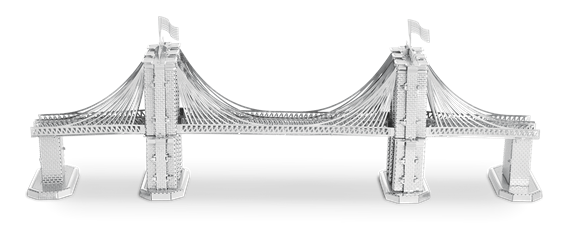
MMS048
BROOKLYN BRIDGE
2 Sheets
Moderate
The Brooklyn Bridge is located in New York City and is one of the oldest suspension bridges in the United States. Completed in 1883, it connects the boroughs of Manhattan and Brooklyn by spanning the East River.
$0.00
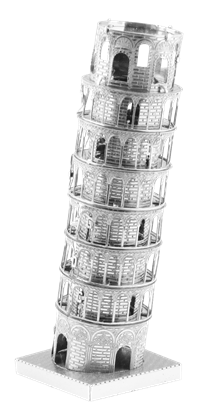
MMS046
TOWER OF PISA
1 Sheet
Moderate
The Leaning Tower of Pisa, known worldwide for its unintended tilt to one side, is the freestanding bell tower of the cathedral in the Italian city of Pisa. Work on the ground floor of the white marble campanile began on August 8, 1173.
$0.00
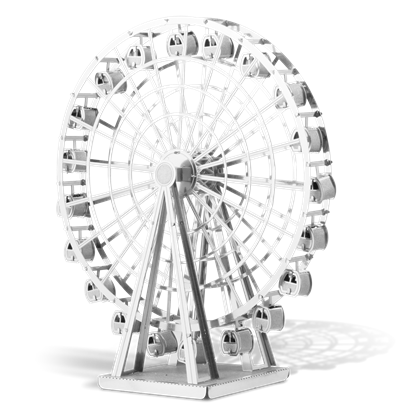
MMS044
FERRIS WHEEL
2 Sheets
Moderate
The first modern Ferris Wheel was designed and constructed by George Washington Ferris as a landmark for the 1893 Worlds Columbian Exposition in Chicago. The term Ferris wheel later came to be used generically for all such structures. As of 2012, the Singapore Flyer at 541 feet high is the world’s tallest wheel.
$0.00
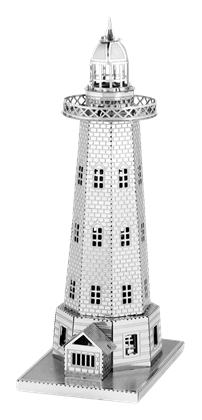
MMS040
LIGHT HOUSE
1 Sheet
Easy
A tower designed to emit light for marking dangerous coastlines, hazardous shoals, hidden reefs and also to help guide ships into safe harbors. Often these towers are cylindrical in order to avoid damage from strong winds.
$0.00
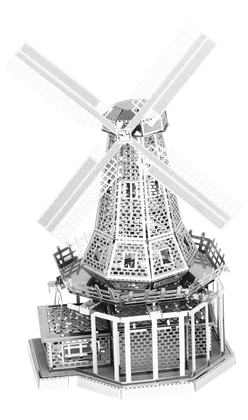
MMS038
WINDMILL
2 Sheets
Moderate
The term windmill derives from their use to mill grain. The first windmills appeared in Europe during the 12th century in northwestern France and southern England. At their peak of popularity some windmills were able to produce more than 1.5 megawatts of power, a level not reached again until 1988.
$0.00
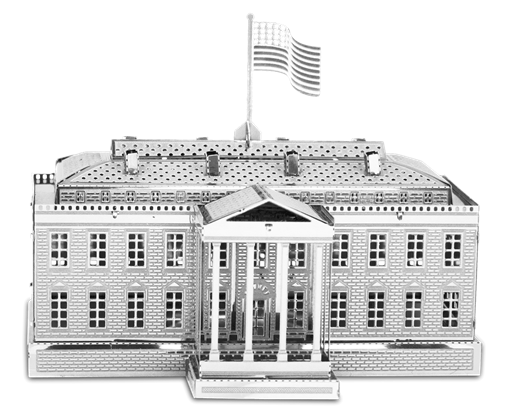
MMS032
WHITE HOUSE
2 Sheets
Moderate
Located at 1600 Pennsylvania Avenue NW in Washington, D.C., the White House is the official residence and principal workplace of the President of the United States. It was designed by Irish-born James Hoban and built between 1792 and 1800 of white-painted Aquia sandstone. During the War of 1812 British troops burned it in retaliation for an earlier burning of Canadian government buildings in York, Ontario, by the United States.
$0.00
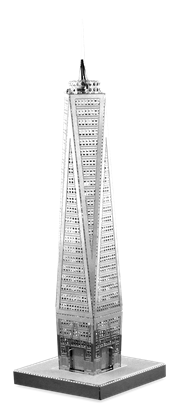
MMS024
ONE WORLD TRADE CENTER
1 Sheet
Easy
The tallest building in the United States and among the tallest in the world with its radio antenna reaching a symbolic height of 1,776 feet in reference to the year of American independence. The building includes office space, an observation deck, world-class restaurants plus broadcast and antennae facilities and stands as a memorial to those who lost their lives September 11th, 2001.
$0.00
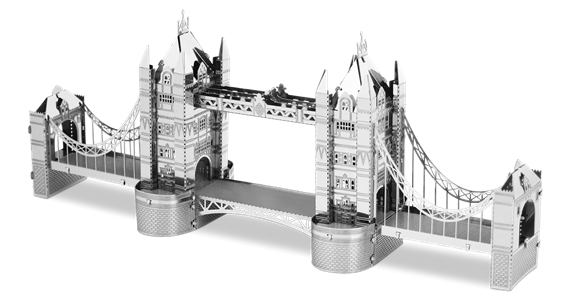
MMS022
LONDON TOWER BRIDGE
2 Sheets
Moderate
London Bridge refers to several bridges that have spanned the River Thames between the City of London and Southwark, in central London. The current crossing, which opened to traffic in 1973, is a box girder bridge constructed from concrete and steel. It replaced a 19th-century stone-arched bridge, which in turn superseded a 600-year-old medieval structure. This was preceded by a succession of timber bridges; the first was built by the Roman founders of London.
$0.00
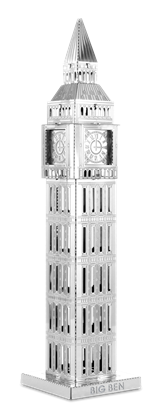
MMS019
BIG BEN TOWER
1 Sheet
Moderate
Big Ben is the nickname for the great bell of the clock at the north end of the Palace of Westminster in London though today the name also refers to the clock and the clock tower. The bell weighs almost 14 tons and each clock face is 23 feet in diameter. It became fully operational on September 7th, 1859 and is today one of the most prominent symbols of London standing at 316 feet high. The clock requires winding three times per week and pennies are periodically added or removed from the clock of pendulum to maintain its accuracy.
$0.00
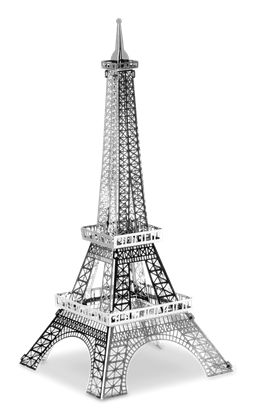
MMS016
EIFFEL TOWER
1 Sheet
Easy
Located on the Champ de Mars in Paris, the Eiffel Tower has become a global icon of France and one of the most recognizable structures in the world. Named after its designer, engineer Gustave Eiffel, the tower was built as the entrance arch to the 1889 World’s Fair and stands at 1,063 feet tall. It was the tallest man-made structure in the world until the Chrysler Building was built in 1930.
$0.00
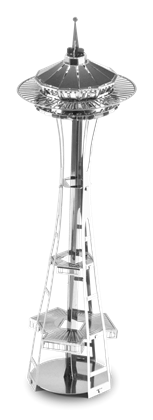
MMS014
SPACE NEEDLE
1 Sheet
Moderate
The Space Needle is a tower in Seattle, Washington. It is a major landmark in the Pacific Northwest region of the United States and a symbol of Seattle. Located at the Seattle Center, it was built for the 1962 World's Fair, during which time nearly 20,000 people a day used the elevators, with over 2.3 million visitors in all for the World Fair. The Space Needle is 605 feet high at its highest point and 138 feet wide at its widest point and weighs 9,550 tons.
$0.00
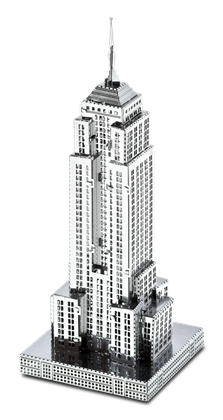
MMS010
EMPIRE STATE BUILDING
1 Sheet
Easy
The Empire State Building is the highest building in New York City. This 102 story building rises 1,250ft above the city at the intersection of Fifth Avenue and West 34th Street. Its name is derived from the nickname for New York, the Empire State.
$0.00
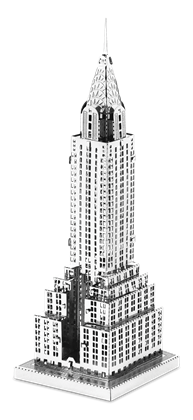
MMS009
CHRYSLER BUILDING
1 Sheet
Easy
The Chrysler Building is an Art Deco skyscraper in New York City, located on the east side of Manhattan at the intersection of 42nd Street and Lexington Avenue. Standing at 1,047ft, it was the world’s tallest building for 11 months before it was surpassed by the Empire State Building in 1931.
$0.00
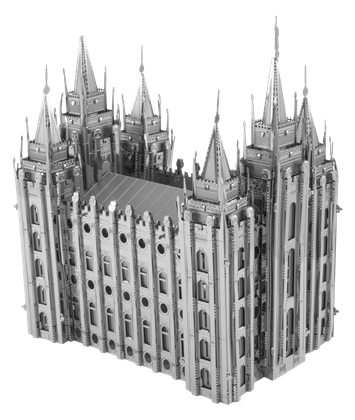
ICX027
SALT LAKE TEMPLE
2.5 Sheets
Expert
Is a temple of The Church of Jesus Christ of Latter-day Saints located on Temple Square in Salt Lake City, Utah, United States. The temple took 40 years to build and was dedicated in 1893.
$0.00















